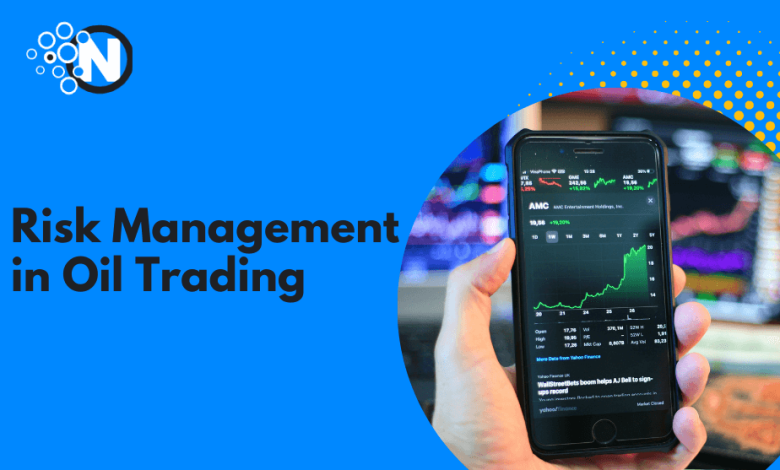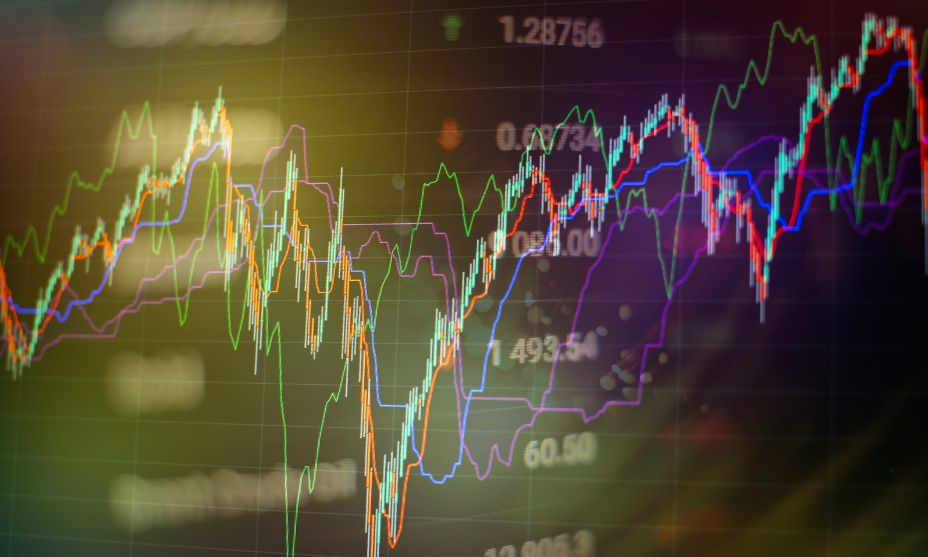The Importance of Risk Management in Oil Trading

In the dynamic mercantile environment, oil is an important asset. Oil trade, comprising the purchase and sale of crude oil and its products, has remained integral to international economics not only through determining gasoline prices but also through geopolitics stability. However, the cautious complexity of this area and the risks that come with it show how vital well-managed risks are.
Risk management is a vital part of oil investing and so is education about markets and investing. Try Oil Profit for sorted investment education and connect with educational firms on the go.
Knowing How to Trade Oil
An Overview Of The World Market For Oil
Global oil market is a large and interdependent web of producers, consumers, traders and speculators. It revolves around the trade in refined products, crude oil and most varieties of oil derivatives, as well as options and futures contracts.
Key Players in the Oil Trading Industry
Many parties are associated with oil trading including banks, major producers of oil (like OPEC members and non-OPEC countries), speculators, and international companies dealing with the production of oil.
What Influences Oil Price
Many variables affect oil prices, namely the scale of supply and demand, geopolitical crises, economic indices and environmental issues. As a result of these factors, price volatility may be relatively high.
Risks in Oil Trading
Price Volatility and Market Fluctuations
One of the most apparent risks that come along with trading oil is price instability. In the short term, oil price changes may be caused by supply-demand relationship changes, geopolitical events or economic factors. This type of investing entails significant profits or losses since there is a lot of volatility in price movements. Risk management strategies allow traders to predict and address market fluctuations, so they are poised for success or minimize risks.
Geopolitical Risks
The oil industry is highly sensitive to geopolitical shocks. All these include political unrest, oil-producing areas conflict and penalties for large oil companies that can ruin the supply of oils and generate market tremors. These factors can disrupt the supply chain, leading to sudden price spikes or drops. Risk management practices help traders assess and mitigate geopolitical risks, allowing them to make informed decisions and adapt their positions in response to changing global circumstances.
Risks Associated with Operations
Transporting and storing oil involves intricate logistics that are prone to operational errors. Trading activities and financial stability can be impacted by refinery outages, oil spills, and transportation mishaps. Shifts in global demand, production disruptions, or changes in extraction technologies can significantly impact oil prices.
Risks Related To The Environment And Regulations
In recent years, environmental concerns and regulatory change-related hazards have become more prominent. Tighter environmental rules and a shift to cleaner sources of energy can affect the value of oil assets while creating compliance challenges.
The Need for Risk Management
Risk Management in Oil Trading: An Explanation
In terms of oil trade, risk management refers to the systematic process of identifying, assessing, and managing risks associated with trade processes. Its primary objectives are asset protection and the sustainability of trading operations.
The Goals of Risk Management
A number of important objectives, which include avoiding financial losses, ensuring business continuity, compliance with legal standards and better decision-making skills are addressed through good risk management.
Advantages of Sophisticated Risk Management
Businesses that put strong risk management techniques into practice are better able to handle the difficulties presented by the oil trading sector. Gains include a stronger competitive advantage in the market, better financial stability, and an improved reputation.

Tools and Strategies for Risk Management
Strategies for Hedging
In oil trading, hedging is a vital risk control tactic. It entails minimizing exposure to volatile market circumstances and offsetting price variations with financial instruments such as futures and options contracts.
Portfolio Management and Diversification
Managing risk can be achieved by diversifying trading portfolios among different commodities and geographical areas. Proper portfolio management guarantees equitable exposure to various risk factors.
Complex Models for Risk Assessment
Complex risk assessment models use historical data and statistical analysis to measure risk. With the use of these models, traders may predict future changes in the market and make well-informed judgments.
Scenario Analysis and Stress Testing
In scenario analysis, several market situations are simulated in order to evaluate how they would affect trading positions. Contrarily, stress testing assesses how trading portfolios might fare in adverse circumstances.
Best Practices for Risk Management
Putting in Place a Risk Management Structure
Building a thorough framework that delineates roles, responsibilities, and protocols for risk identification, assessment, and mitigation is the first step towards effective risk management.
Evaluation and Identification of Risks
Determine and evaluate the risks connected to trading operations on a regular basis. This entails assessing operational vulnerabilities, geopolitical changes, market conditions, and compliance needs.
Control and Risk Mitigation
Put risk-reduction techniques like insurance, diversification, and hedging into practice. Keep a close eye on your trading positions and take the necessary precautions to reduce any potential losses.
Consistent Observation And Reporting
Keep an eye on how well risk management techniques are working. To aid in well-informed decision-making, keep thorough records and produce reports on a regular basis.
Case Studies for Effective Risk Management
Companies That Manage Risk Effectively
Several businesses in the oil trading industry have demonstrated exceptional risk management. For example, ExxonMobil has a long history of using advanced risk management techniques.
Knowledge Acquired
These success stories teach us important lessons about the value of diversity, proactive risk management, and ongoing market condition adaption.
Techniques for Adoption
Similar tactics can be used by businesses by emphasizing risk management, spending money on analytical tools, and encouraging a risk-aware culture across the board.
Ending Note
It is impossible to ignore the significance of risk management in oil trading. This industry is complex, thus risk identification, evaluation, and mitigation need to be done with great care. Companies can protect their assets, guarantee company continuity, and prosper in an unstable and dynamic market environment by putting strong risk management policies into place. The capacity to successfully manage risk will continue to be a crucial factor in determining success in this fast-paced oil trading market as the landscape changes.




